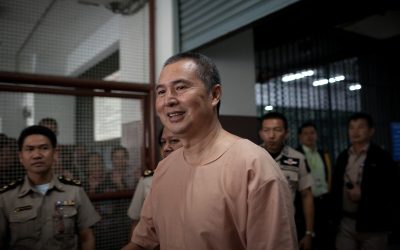The discovery of a colossal financial scam at a company in India’s West Bengal state is exposing the underbelly of the relationship between politicians and media owners in the world’s largest democracy, Mahima Kaul reports.
CATEGORY: Asia and Pacific
China’s two main censorship bodies to merge
The Chinese government's two main bodies of censorship, SARFT (State Administration for Radio, Film, and Television) and GAPP (General...
The big issues for Indian web users
Some of India’s most prominant internet writers, researchers and policy analysts came together in Bangalore on 9 April to discuss “Strengthening Freedom of Expression on the Internet in India”, organised by the Internet Democracy Project. The subject has been intermittently making headlines in India, with a number of politically motivated arrests made under the Information Technology Act’s controversial Section 66a. Causing more confusion, in 2011, the Minister for Communications & Information Technology, Kapil Sibal, made headlines by asking social media intermediaries to take down “objectionable” content. At the time, the content in question seemed to be mainly objectionable to to the government itself. The content in question seemed to be mainly objectionable to the government alone. This caused a huge public uproar, […]
Will new plans for a digital rural India hit or miss?
Since the internet was introduced in 1995 in India’s major cities of Delhi, Mumbai, Chennai and Kolkatta, it has steadly grown in urban areas. By 1998, India has its first Internet Service Provider, Sify (later sold for $155 million). By 2001, India has its first crime branch. By 2005, the country had over 200,000 internet cafes. Facebook arrived in 2006, and in 2009, the government drafted policy on Indian language internet domain names. As individuals in cities stock up on phones, laptops and tablets, accessing free wifi at more and more public places, the question of digital access in rural India still remains. Over the last decade, The National e-Governance Plan sought to bridge this gap by establishing a Common Service Center in […]
Where insulting royalty will put you in jail
An editor was last month sentenced to 11 years in prison, for “defaming” the country’s king. Geoffrey Cain reports on how Thailand’s lèse majesté laws have chilled free speech
How India censored one of its own websites
India’s University Grants Commission (UGC), amongst its other responsibilities, determines and maintains the standards of institutions of higher education in India. As a part of this duty, it had warned students that an institution called IIPM (Indian Institute of Planning and Management) is not a recognised university and does not have the right to issue certificates. The message on the commission’s website has now been blocked, following an interim court order by the Gwalior High Court in relation to a case filed by one of the companies owned by IIPM’s head — Arindam Chaudhuri — seeking to block defamatory content against his institution. The UGC site is not the only website affected by the order. On 15 February, the Department of […]
How a fatwa stopped the all-girl rock
The teenaged members of Kashmiri all-girl band Pragaash decided to shelve their music career after being harassed online, and a fatwa issued against...
India’s flourishing offence industry hits literary festival – again
A few days before the now-famous (and perhaps infamous) Japiur Literature festival, the only thing most people thought they knew was that Salman...
Internet freedom in India – open to debate
In the aftermath of an Index on Censorship debate New Delhi, Kirsty Hughes says India’s web users are standing at a crossroads
What is Bollywood’s role in changing Indian attitudes to women?
Could greater control over Bollywood help reverse a culture of female objectification in India? No, argues Mahima Kaul, but the roles of women in Bollywood films could still do with a makeover
The modern Big Brothers
Autocratic, authoritarian and totalitarian states take it upon themselves to actively stifle freedom of expression. These states can look very different – “socialist” North Korea may seem very different to “theocratic” Iran, but even with vastly differing cultures and political landscapes, we can draw similarities between the methods used by these regimes to suffocate and in some cases entirely suppress free speech
Kazakhstan crackdown set to continue
Kazakh prosecutors last month achieved international notoriety, as they sought to close eight newspapers and 23 web sites, and sued Google,...








